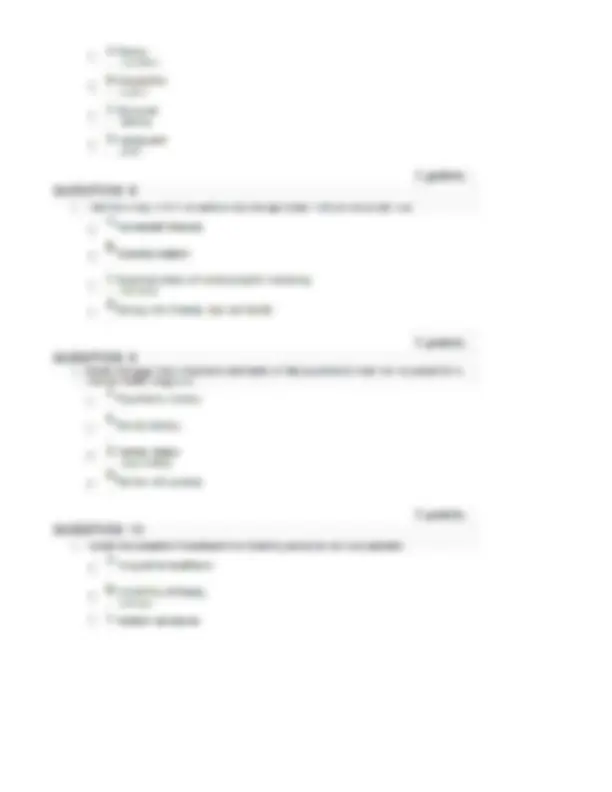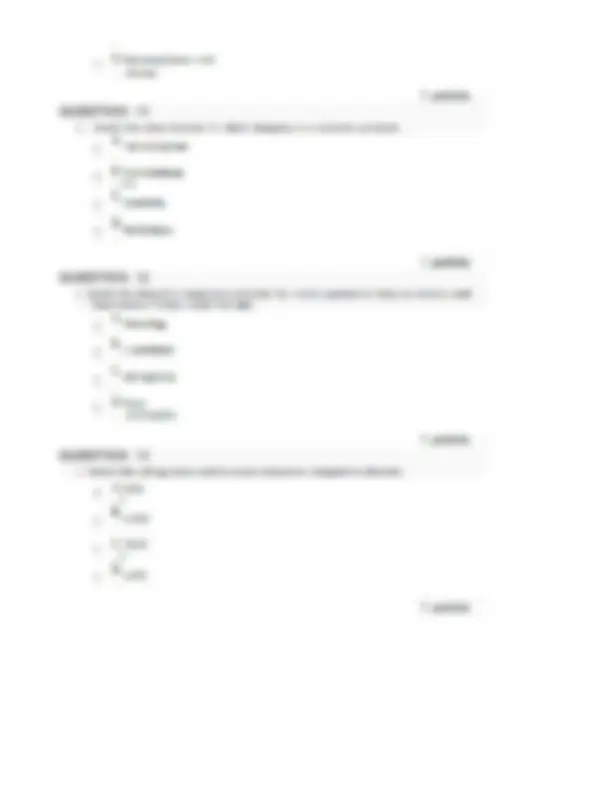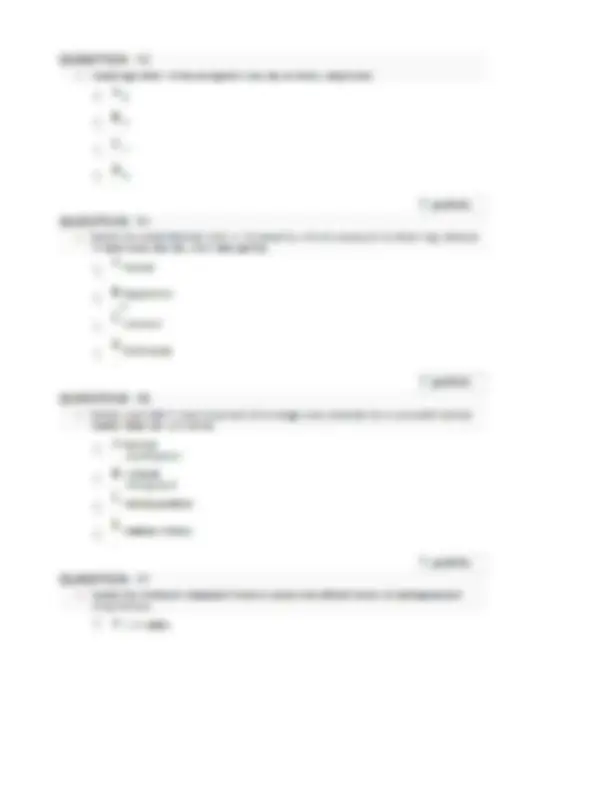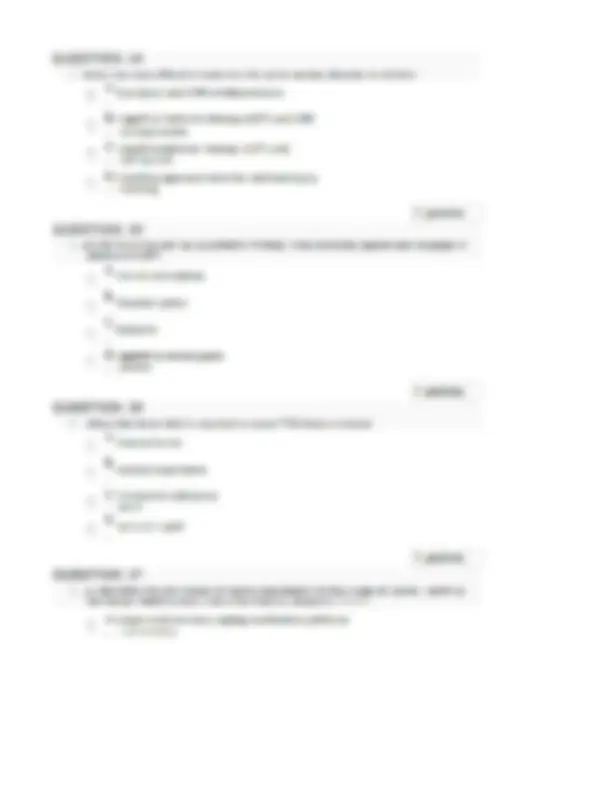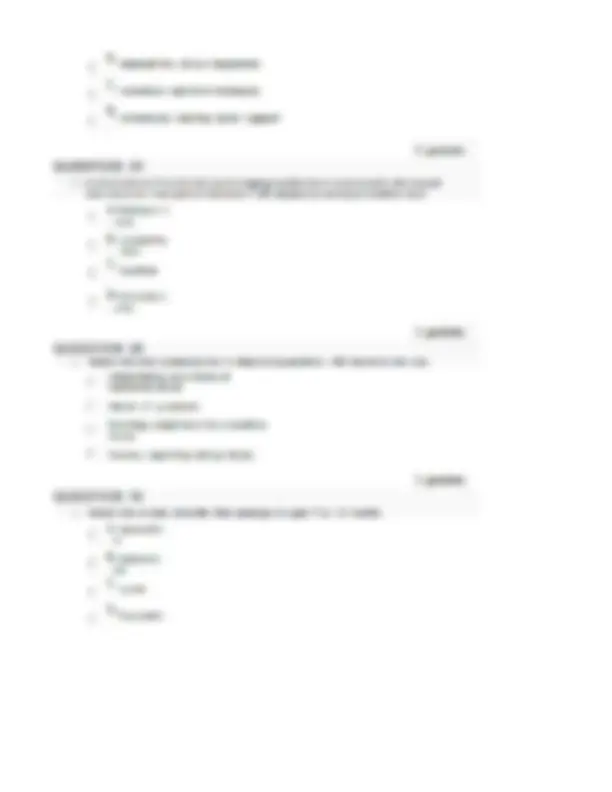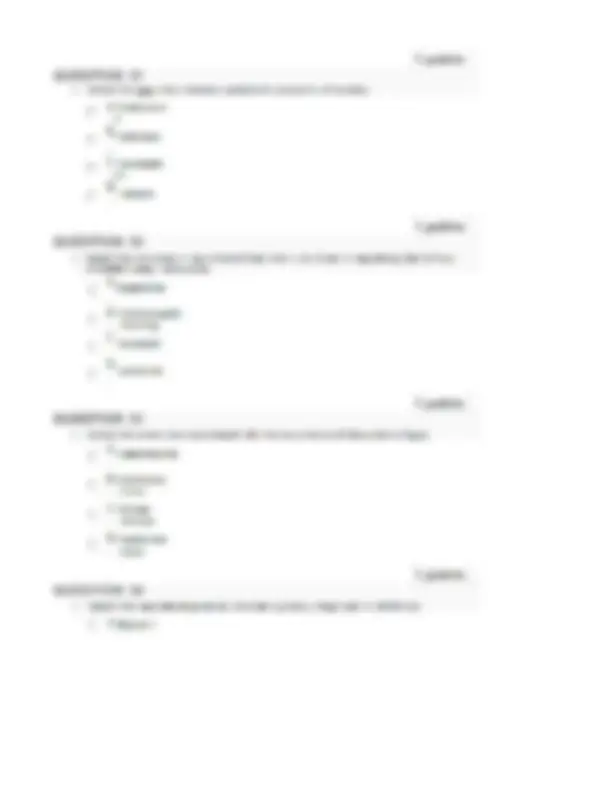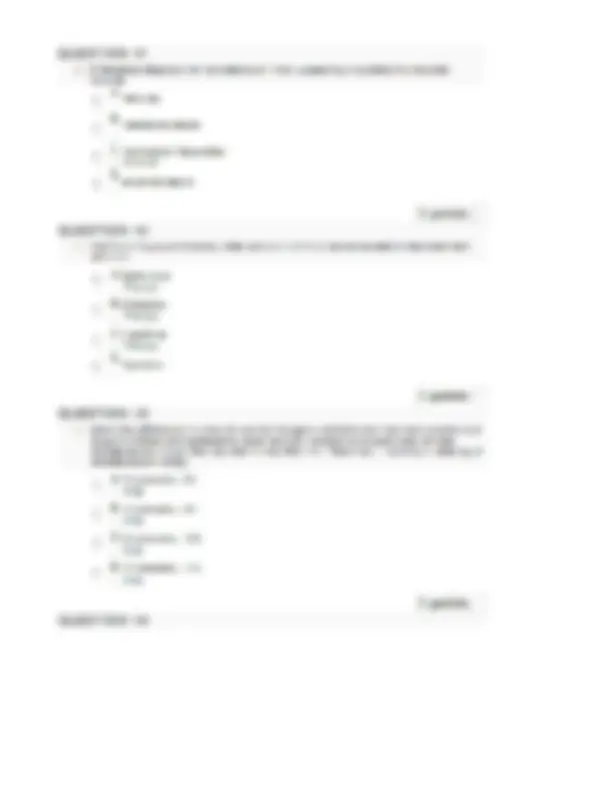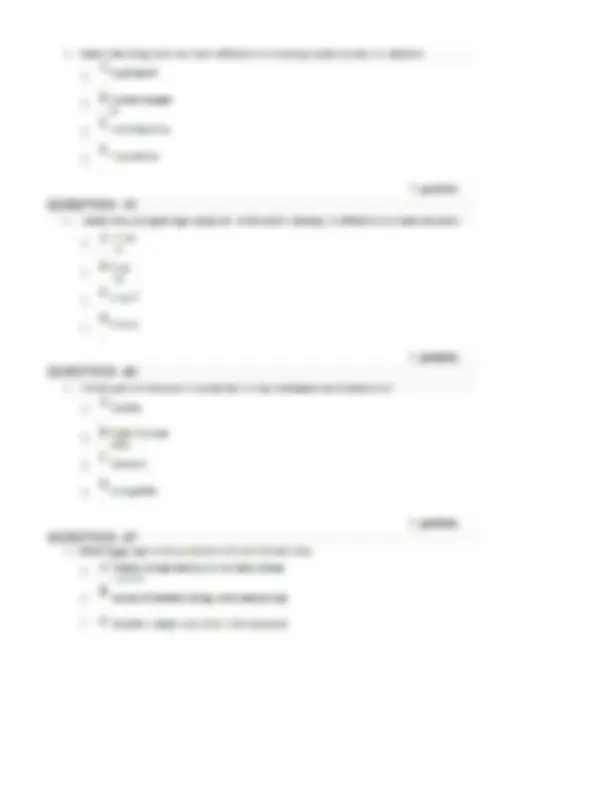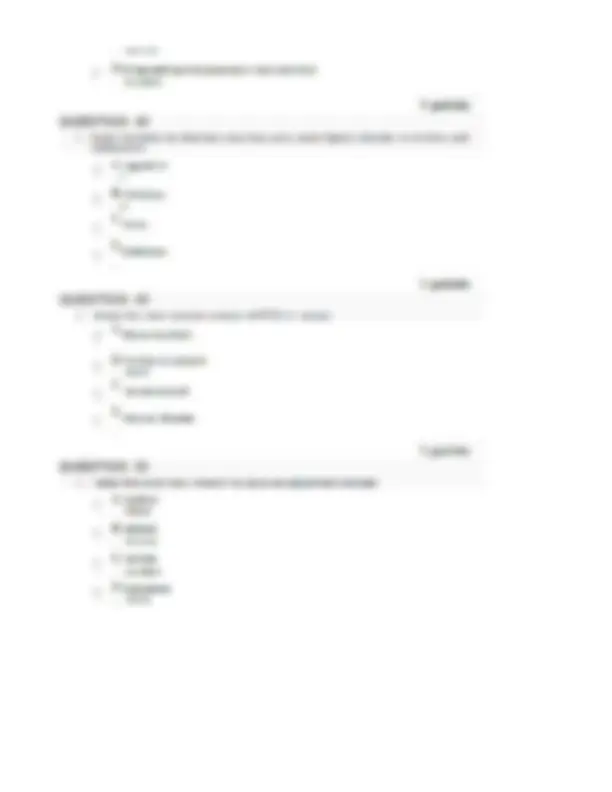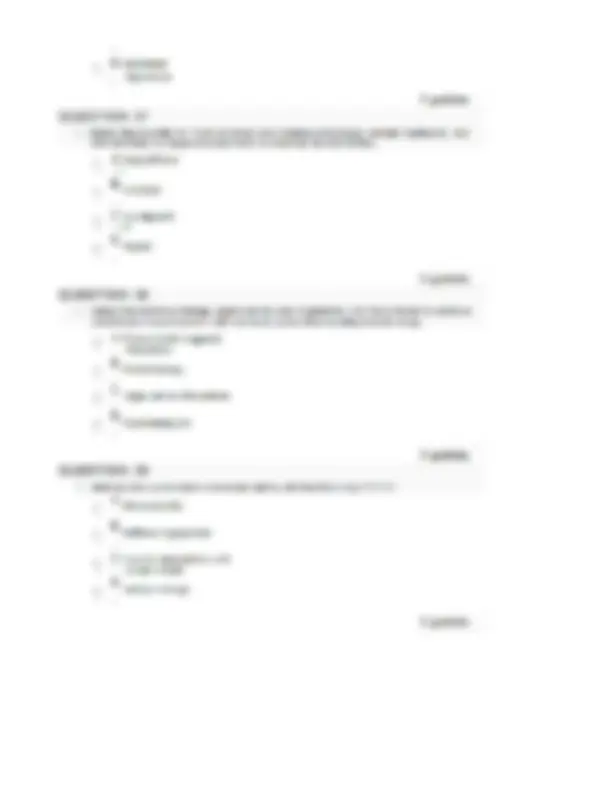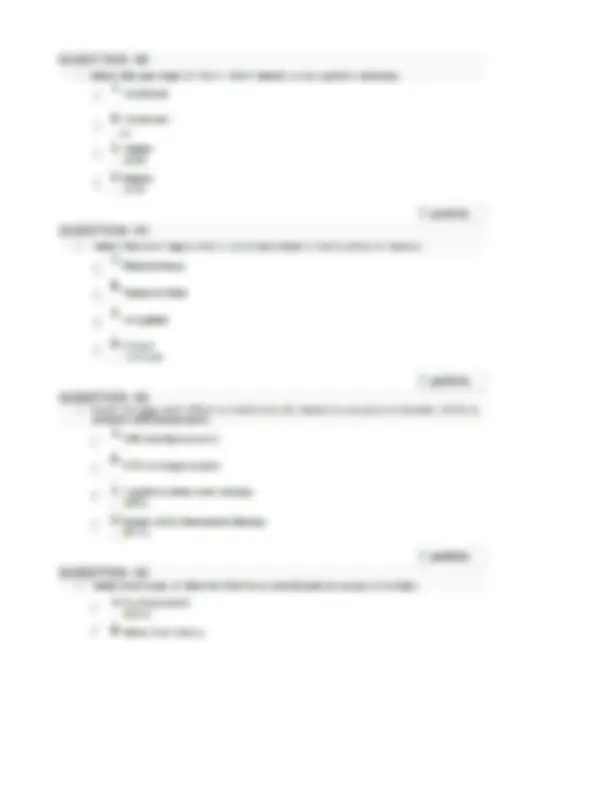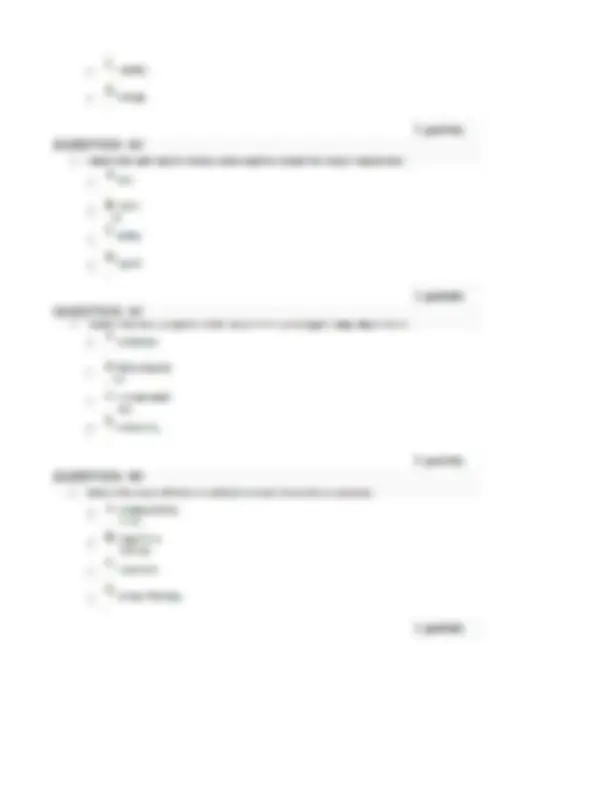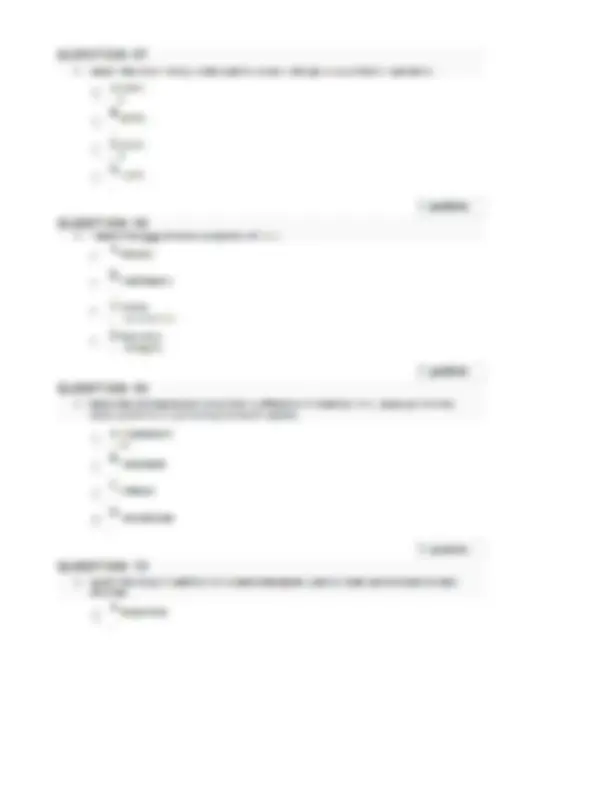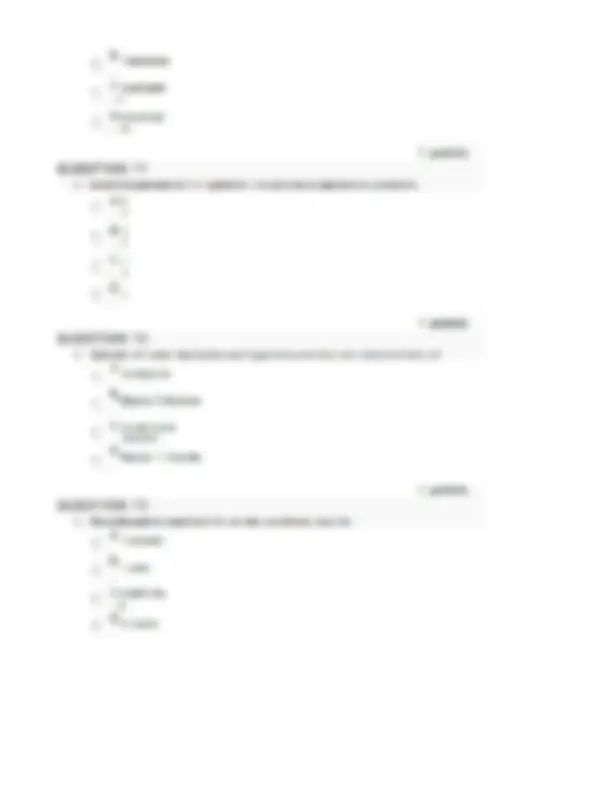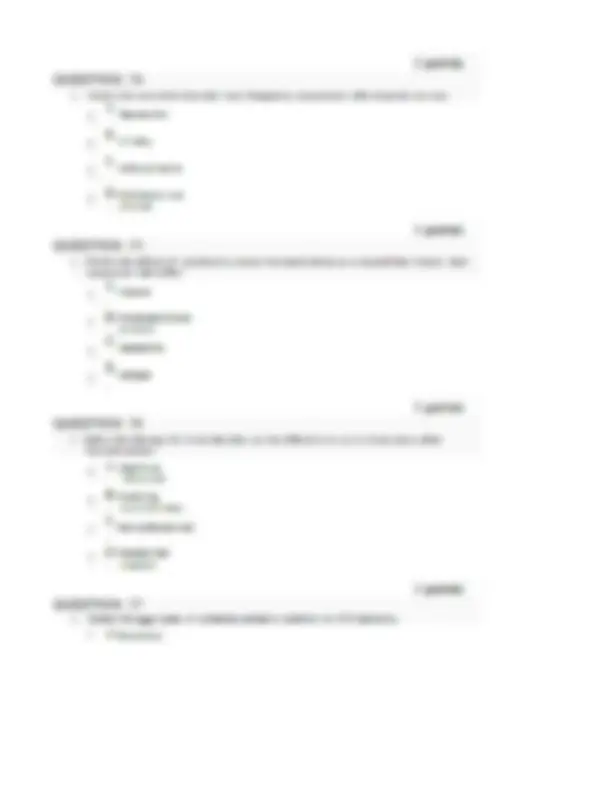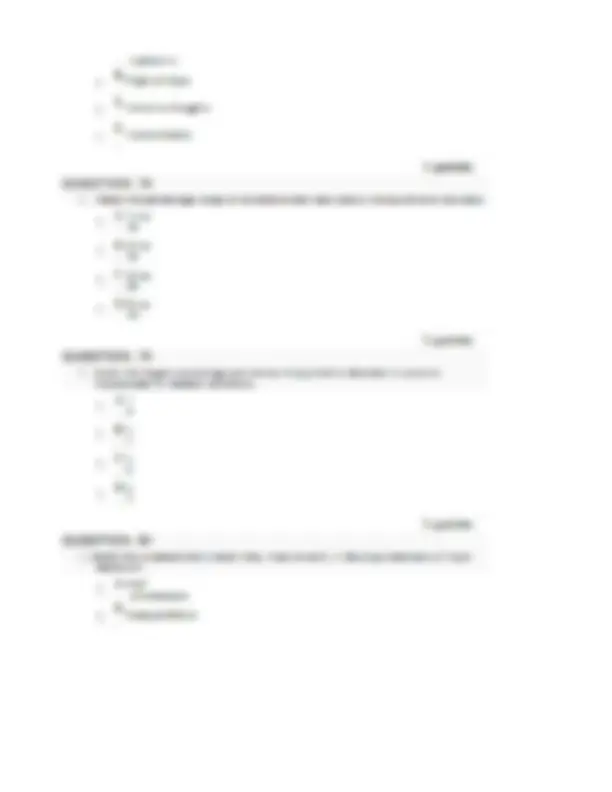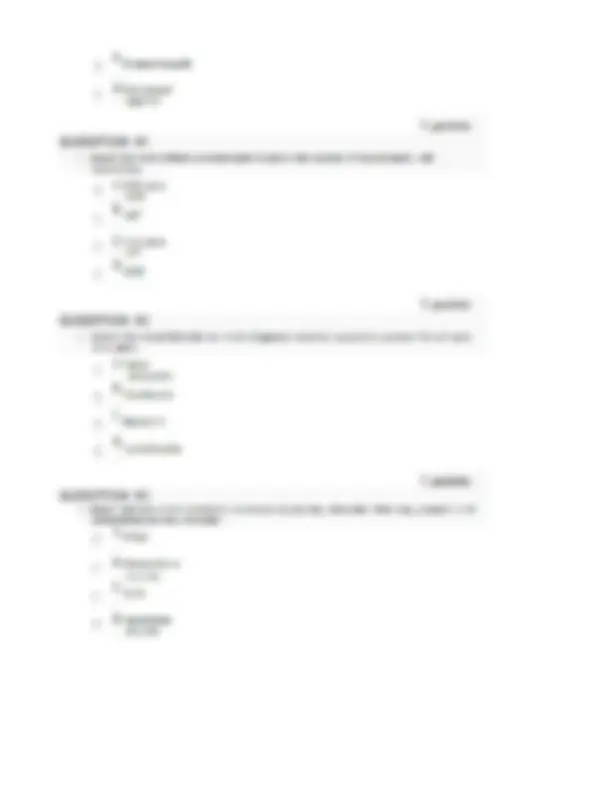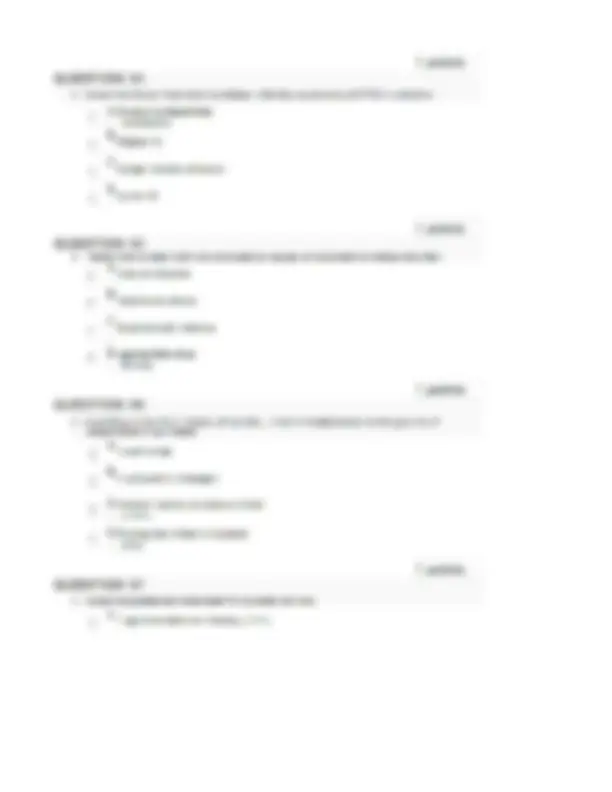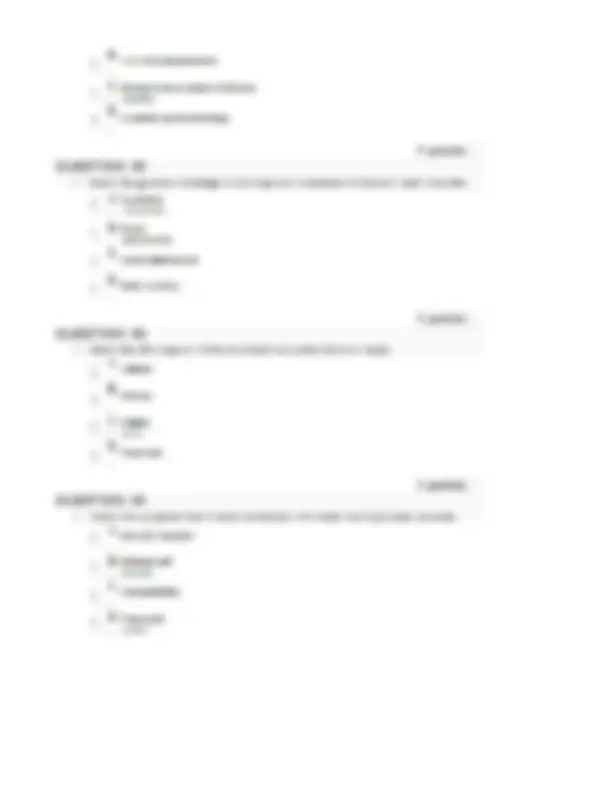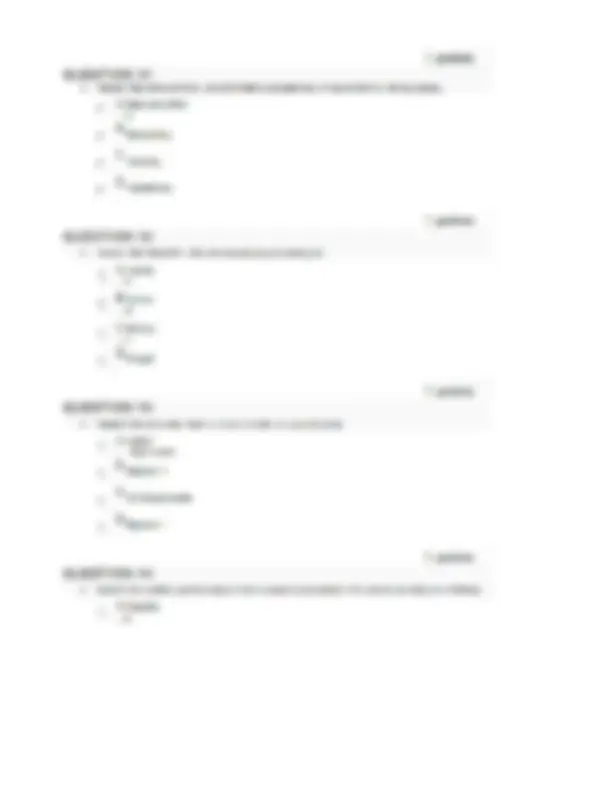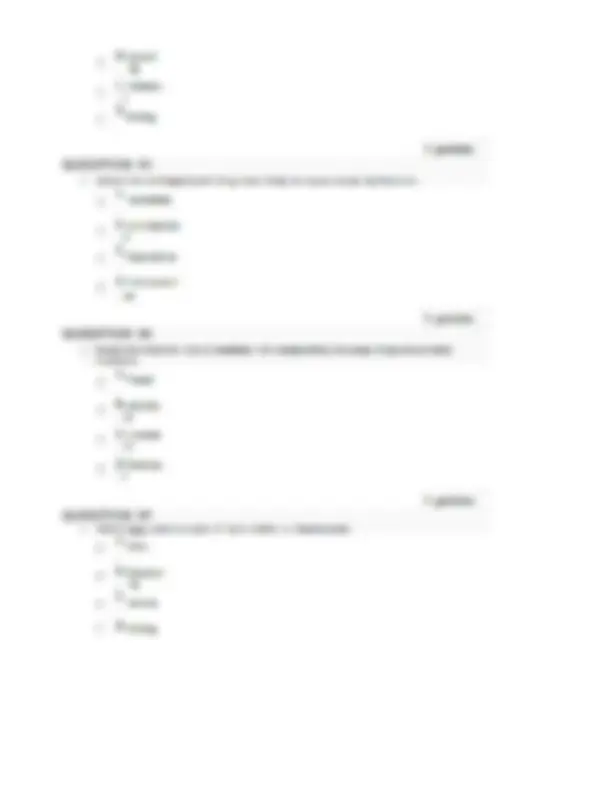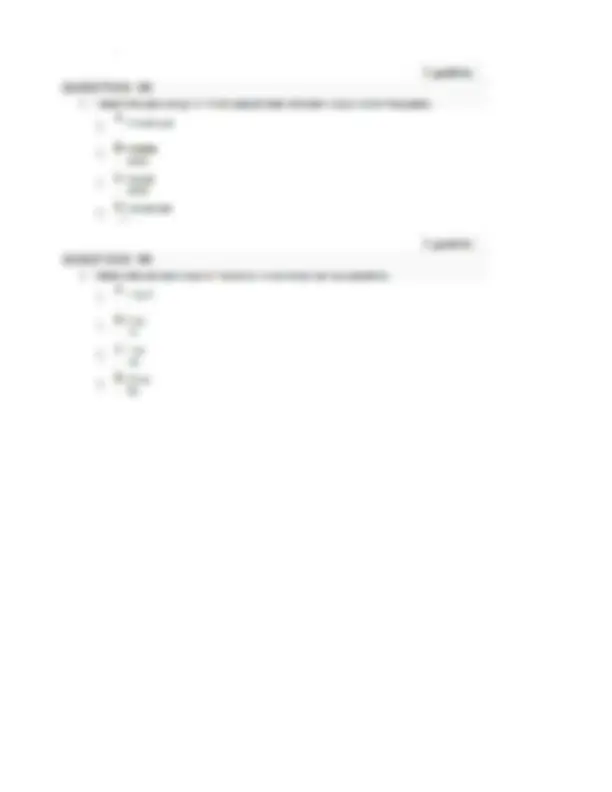Download NRNP 6635 Midterm Exam (Version-2, 100 Q & A, Latest-2025) / NRNP6635 Midterm Exam: Walden and more Exams Nursing in PDF only on Docsity!
Questions Only QUESTION 1 |. Select the serum assessment that is required when prescribing drugs to treat psychiatric disorders in psychosomatic patients. fal A Potassium cB White blood "cells c.. fal Liver enzymes cD Blood urea * nitrogen 1 points QUESTION 2 1. Select the theorist who developed the eight stages of psychosocial life cycle. - ABowlb 7 .y c B Perls c C Erikso - oon - DRoger os 1 points QUESTION 3 1. Select two causes of dissociative amnesia. r A Sexual abuse B Substance abuse ml rc c Surgical pain D Partner betrayal. | 1 points QUESTION 4 1. Select the patient evaluation scale to be used before and during prescribing antipsychotic drugs. c A Anse ce Baims c c CAGE - DHAM - 1D 1 points QUESTION 5 1. Select the two comorbid disorders with which Pica occurs most commonly. rc a Enuresis B - cr Encopresis r © autism r D Intellectual disability 1 points QUESTION 6 1. Select the prognosis range of untreated PTSD patients. c A 10% recover, 20% mild symptoms, 30% moderate symptoms, 40% no * | change or worse c B 20% recover, 10% mild symptoms, 40% moderate symptoms, 30% no * . change or worse c C 30% recover, 40% mild symptoms, 20% moderate symptoms, 10% no * change or worse c D 40% recover, 30% mild symptoms, 10% moderate symptoms, 20% no * , change or worse 1 points QUESTION 7 1. Select the memory category retained in transient global amnesia that is absent in dissociative amnesia. a D Noncompliance with *, therapy 1 points QUESTION 11 1. Select the sleep disorder in which cataplexy is a common symptom. c A Central apnea ¢ B Somnambule nce Cc . c Insomnia D Narcolepsy oa 1 points QUESTION 12 1. Select the obsessive-compulsive disorder for which a patient is likely to initially seek help from a Primary Care Provider. ‘el A Hoarding c 5 Excoriation c ¢ Hair-pulling a D Body ; * , dysmorphia 1 points QUESTION 13 1. Select the rating scale used to assess obsessive-compulsive disorder. a AHAM- cc ” CAGE Aa a 3 8 1 points QUESTION 14 1. Select age after which encopresis may be correctly diagnosed. a Ag a: oa: oa: 1 points QUESTION 15 1. Select the mood disorder that is worsened by chronic exposure to observing violence in television, movies, and video games. c A Bipolar ¢ B Opposition * al Cc ‘Conduct ao c D pysthymia 1 points QUESTION 16 1. Select a provider's most important knowledge area essential to a successful mental health interview of a child. - Ablormat * , development c B Cultural * background c © siting position C D tedical history 1 points QUESTION 17 1. Select the minimum treatment time to assess the effectiveness of antidepressant drug therapy. C A1-2 weeks c D Multiple sclerosis 1 points QUESTION 21 ‘What is the most IMMEDIATE consideration in assessing depression in adolescents? A steep 5 Safety C Appetit -@ D Anger 1 points QUESTION 22 1. Select the neurotransmitter that is most involved in the pathophysiology of schizophrenia. c 2] % hey A Horepinephri . he B Dopamine c Serotonin D , Acetylcholine 1 points QUESTION 23 ‘Select the most important component of the patient-provider rapport. Cc A Empathy B Confidentiati ty c Respect D Privacy 1 points QUESTION 24 1. Select the most effective treatment for social anxiety disorder in children. Cc A Bupropion and SHRI antidepressants _ B Cognitive-behavior therapy (CBT) and SSRI . antidepressants « C© Cognitive-behavior therapy (CBT) and * , amitriptyline D Coaching approach behavior and leading by * , modeling 1 points QUESTION 25 1. All the following are key psychiatric findings when assessing speech and language in children EXCEPT: Cc A Normal articulation c B Unusual syntax co © Eehotatia D Repetitive stereotypical * . phrases 1 points QUESTION 26 1. Select the factor that is required to cause PTSD from a stressor. c A Intense horror Cc Isolated experience e- © Concurrent substance * abuse De viver’s euil Cc Survivor’s guilt 1 points QUESTION 27 1. All the following are classes of coping mechanisms in the Model of Mental Health as Resilience where humans overcome stressful situations EXCEPT: c A Adaptive involuntary coping mechanisms (defense * | mechanisms) 1 points QUESTION 31 1. Select the two most common peripheral symptoms of anxiety. r A Bradycardi r B Dizziness C Constipati - on r P Tremors 1 points QUESTION 32 1. Select the hormone or neurotransmitter that is involved in regulating the 24-hour circadian sleep-wake cycle. A - c Dopamine ce B Corticotrophin * . releasing fal c Serotonin cP itetatonin 1 points QUESTION 33 1. Select the event most associated with the occurrence of dissociative fugue. c A Head trauma eB Substance - . abuse C Partner * , betrayal - DUnplanned travel 1 points QUESTION 34 1. Select the neurodevelopmental disorder typically diagnosed in childhood.

